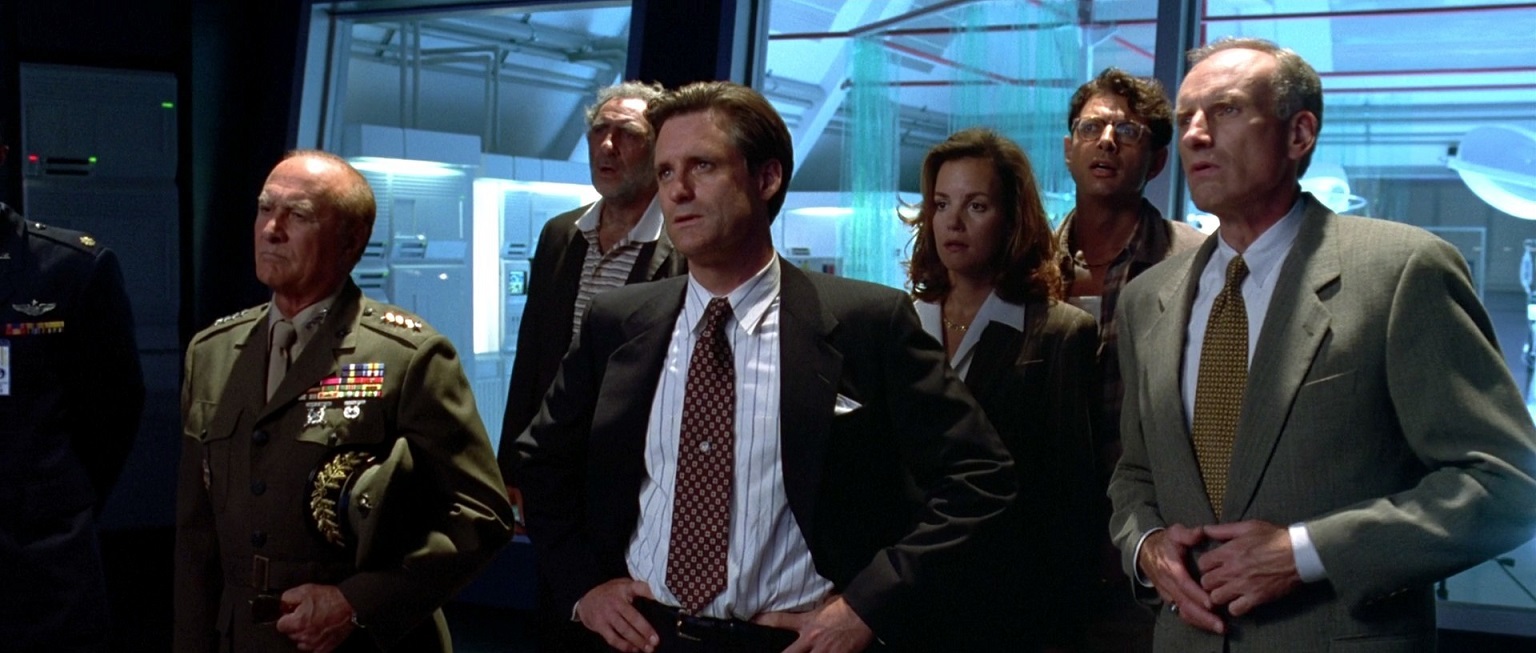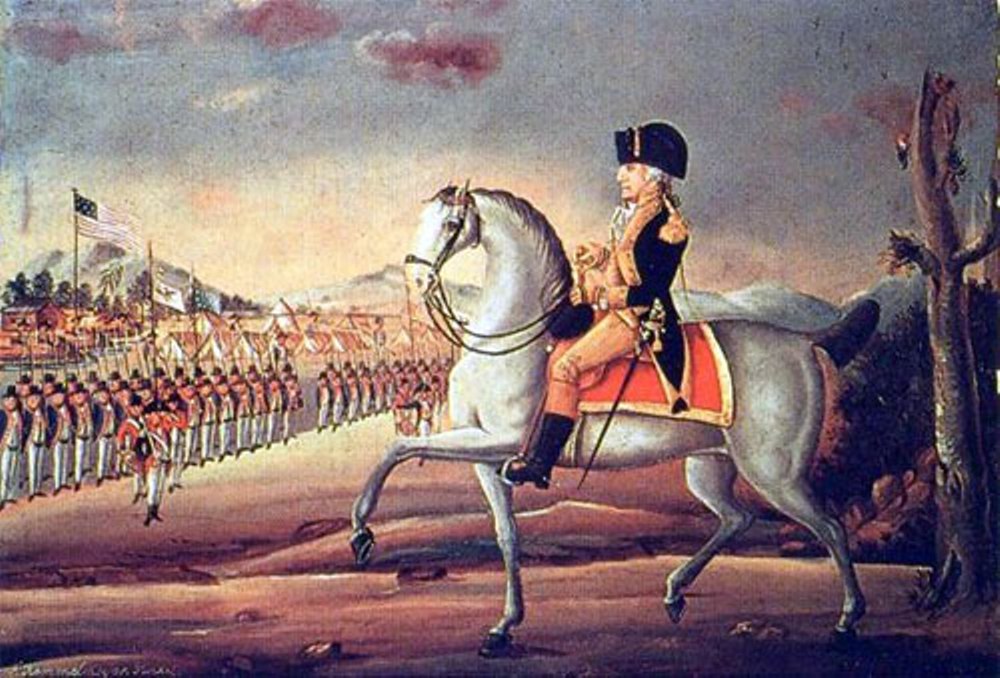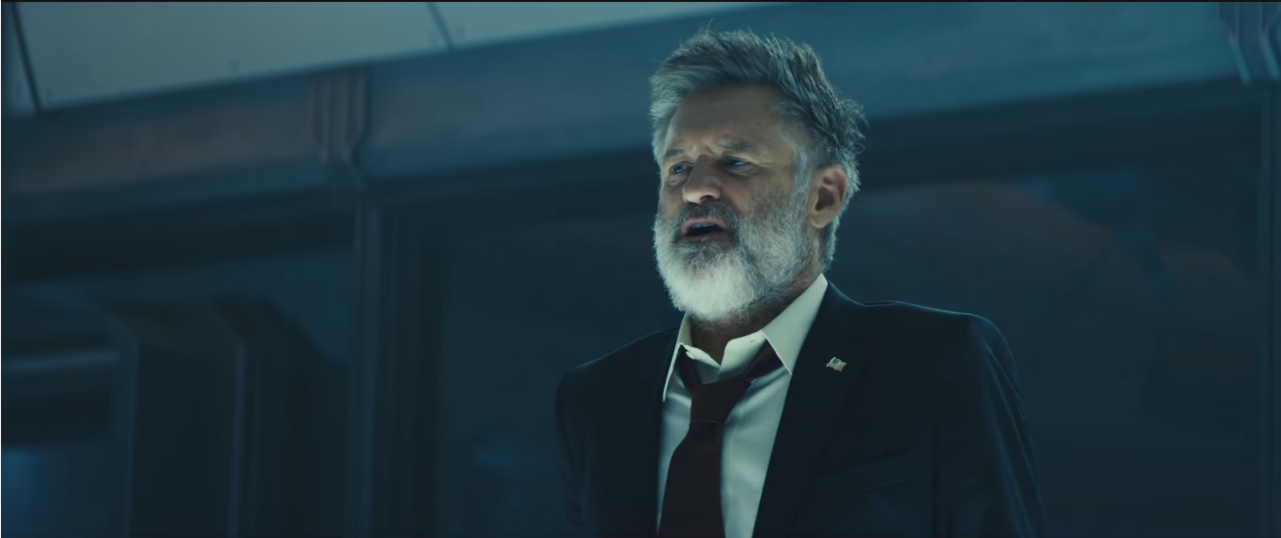When it comes to rousing film speeches, one that always comes to mind is the inspiring words of President Thomas Whitmore from Independence Day. Bill Pullman does an excellent job in the scene, as he rallies his pilots and motivates them to fly into almost certain death against the alien spacecraft. And while his speech is stirring, to say the least, if we take a closer look at his character and the film itself, Whitmore demonstrates that he’s kind of a terrible President.
Too Indecisive
Throughout the entire duration of the film, President Whitmore does very little in terms of proactive action. He mostly reacts to things rather than initiate them. When the spaceships first arrive, he’s afraid to take a stand, so instead encourages his fellow Americans to stay in their homes (all while making plans to evacuate his own wife and daughter). It’s David (Jeff Goldblum) who discovers the signal hidden in the satellites, as well as plans the final counterattack using the computer virus. Whitmore sort of just stumbles along, trying to catch up. He ultimately makes the right decisions (by the end), but only after others paved the way first.

Ineffective at Playing the Game
In the aptly titled HBO series, Cersei Lannister tells Ned Stark, “When you play the game of thrones, you win or you die. There is no middle ground.” While that may have literal applications for the characters in that series, it has very real implications in real world politics. Part of the job of being President (or any other world leader) is dealing with and negotiating with fellow politicians and other heads of state. One of the reasons the biopic Lincoln was so compelling was that it showed firsthand just how much “wheeling and dealing” was required to get the 13th Amendment passed.
Right in the first act, Independence Day lets us know just how much trouble President Whitmore has been having with this aspect of the job. When we first see him in the White House, the news is reporting that the American people “elected a warrior and got a wimp” and that when he goes before Congress he seems like “Oliver Twist asking for more”. The most effective presidents in US history were the ones who knew what they wanted to do and didn’t get bullied by Congress into backing down. It seems like he was a rock star fighter pilot that achieved glory in battle, but struggled with the nuances of playing the political game to get the best outcome.

Taking Unnecessary Risks
After giving his rousing speech, President Whitmore (against the advice of his generals) mans the cockpit of a fighter jet and leads a swarm of pilots in the final battle against the alien spaceship. And while on the surface it seems like a badass display of awesomeness, it’s actually rather foolish. It was certainly motivating to his fellow pilots, but he was needed as a leader for his nation, as well as the human race itself. Had he fallen in battle, it would have been followed by incredible disarray due to the absence of leadership.

It’s the very reason that presidents and generals don’t go to the front lines of battle. They’re needed to make larger decisions for the betterment of everyone. Back in 1941, mere hours after the attack on Pearl Harbor, Japanese force were also attacking other nearby islands, including the Philippines. General Douglas MacArthur was stationed there, but knew the overwhelming force would soon overtake the American garrison.
There wasn’t enough time or resources to evacuate every soldier, but President Roosevelt asked MacArthur himself to retreat. Initially he refused, nobly wanting to stay with his men. However, Roosevelt eventually ordered him to leave, knowing that he would be needed for the war to come. President Whitmore would have done well to understand this principle.

Wartime vs. Peacetime
As Whitmore contemplates the devastation on Air Force One, he goes so far to admit, “That’s the advantage of being a fighter pilot. In the Gulf War, we knew what we had to do. It’s just… not simple anymore. A lot of people died today. How many didn’t have to?” And he makes a very genuine point. Leading in a time of war is vastly different than in times of peace. One must know how to play the political game, keep the big picture in mind, and carefully calculate the pros and cons of every decision. He was clearly an effective pilot and leader during war, as he proves once again when leading the attack at the end of the film. But his particular set of skills doesn’t include governing when there isn’t some imminent threat coming.

The same could be said about one of the most popular and famous world leaders in history: Winston Churchill. When he assumed the office of Prime Minister of Great Britain, Nazi Germany was well on their way to conquering most of Europe, the homeland was subject to constant bombings known as “The Blitz”, and 400,000 British troops sat on a beach across the English Channel in need of rescue before being captured or killed by the Germans. But Churchill was a bold leader who wasn’t afraid to do whatever needed to be done. He led his nation gallantly through the war, just to lose his reelection in 1945. Germany had already surrendered, and the British people felt that, despite his pivotal role in winning the war, he wasn’t the best Prime Minister for peacetime. Because that requires a very different set of skills.
Thomas Whitmore certainly isn’t a bad character by any means. He honestly tries his best and when he makes mistakes, he takes ownership and feels terribly for them. His intentions were always of the utmost purity, but he lacked some of the core skills needed to be an effective leader and President.






Undeniably imagine that that you said. Your favorite reason seemed to be on the web the
easiest factor to consider of. I say to you, I certainly get annoyed whilst other people consider concerns that they plainly don’t know
about. You controlled to hit the nail upon the highest and
also defined out the entire thing without having
side-effects , people can take a signal. Will probably be back to get more.
Thanks https://bahastopikgosip1.blogspot.com/2019/01/automotive-service-managers-deal-with.html